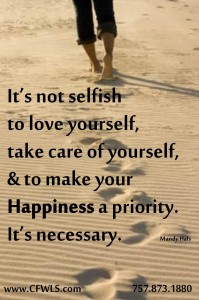 Your feelings regarding life after surgery will likely vary depending upon how far out you are from surgery, your level of preparation prior to surgery, your ability to manage change and your overall attitude/mindset. Rest assured, there is often not a dry eye in the office as goals are met/exceeded throughout the first year after surgery and beyond. It’s extremely rewarding for you and everyone involved and you hear more often than not “I wish I would have done this sooner”. As a generalization, at the Center for Weight Loss Success, we have found that most people go through a few expected phases and the timeframe for each varies:
Your feelings regarding life after surgery will likely vary depending upon how far out you are from surgery, your level of preparation prior to surgery, your ability to manage change and your overall attitude/mindset. Rest assured, there is often not a dry eye in the office as goals are met/exceeded throughout the first year after surgery and beyond. It’s extremely rewarding for you and everyone involved and you hear more often than not “I wish I would have done this sooner”. As a generalization, at the Center for Weight Loss Success, we have found that most people go through a few expected phases and the timeframe for each varies:
- Phase 1: What have I done?
- Phase 2: I can do this.
- Phase 3: I am glad I did this.
- Phase 4: I wish I would have done this sooner!
- Phase 5: I need to stay on track (especially if necessary long term success habits throughout the first year after surgery weren’t developed)
At the time of this publication, the primary surgery performed by Dr. Clark at the Center for Weight Loss Success is the sleeve gastrectomy. In fact, most of these patients go home the same day of surgery since you generally recover better in your own home environment. You go through a thorough pre-operative program and your post-operative program begins right away.
When you first go home from the hospital, here are some general guidelines for what to expect. Of course, each surgeon has their own particular orders so be sure to follow whatever he/she recommends.
- With regards to your diet, you will want to make sure you are staying hydrated by sipping all day. You will usually continue with a liquid diet until you are seen by your surgeon 10-14 days after surgery. You should not have any carbonated beverages – refer to your the liquid diet instructions set forth by your surgeon. You need to stay hydrated and do your best to try to get about 80-100 grams of protein in per day with high quality protein shakes (again, follow your surgeons specific orders).
- You will want to be up and walking as tolerated and rest when you are tired. You are usually permitted to shower. Common sense comes into play here. If anything is hurting you then you probably should not be doing it yet. At the Center for Weight Loss Success, we restrict lifting to no more than 20 pounds for the first two weeks and restrict driving for 3-4 days after surgery as long as you are off of your pain medication. Getting up and moving is a good thing. Not only for your body but for your emotional state as well.
- Your surgeon will have specific instructions for wound care and medications. Follow these as instructed.
- It is not unusual for you to question “What did I do?” the first days after surgery. It is a big adjustment and although you won’t likely feel hungry, just drinking liquids is a big change and can be difficult to get used to. The first few days tend to be the worst and then you get used to it. It helps to focus on your goals. This will all be worth it.
- Make sure you go to all of your scheduled follow-up appointments and call your surgeon if you have any questions/concerns.
After the first two weeks, you will generally be able to begin “mushy” foods. At the Center for Weight Loss Success, we have a thorough educational program that guides you through exactly what to do/eat which is beyond the scope of this book. Your experienced bariatric surgeon/center will likely have similar resources for you.
At approximately one month after surgery, you will begin eating more regular foods. You will want to focus on getting in an adequate amount of quality protein (at least 90 grams), staying hydrated (sometimes thirst is mistaken for hunger) and easing into a regular exercise regimen. Your experienced bariatric surgeon/center will have an entire plan set to help guide you through each phase after surgery. Remember, it is never too early to begin your habits for success. As a general rule, these include:
- Eating – Don’t skip meals. Food choices should be low fat and low sugar. Think “Protein First”. Eating should be approached as “how little can I eat and be satisfied”, NOT “how much can I fit into my new smaller stomach”. You will want to cut your food up into small pieces, use a smaller plate, put your fork/spoon down in between bites and chew slowly. It is best to eat at a table and not “on the run” so you will avoid eating too fast, overfilling your pouch and end up with unnecessary pain or difficulty.
- Drinking – Try to avoid drinking with your meals since it “washes” the food through quicker and decreases your ability to stay fuller longer. Beverages should be non-caloric and non-carbonated. Drinking 8 glasses of water each day is a good idea with any weight loss plan. Avoid alcoholic beverages.
- Vitamins – Multivitamins should be taken daily – Forever. Other vitamins and/or supplements may be needed depending upon individual needs.
- Sleeping – Make sure you are well rested. You will be most successful if you sleep an average of 7 hours each night.
- Exercise – Regular exercise is extremely important and should be done at least 3-4 times per week for at least 30-40 minutes.
- Personal Responsibility – Successful patients take personal responsibility for weight loss/weight control. It’s up to you!! No one else can lose the weight for you. The surgery is only a “tool”. You have to use this tool appropriately.
Every person recovers at a different rate. It is important to take it one day, one week, and one month at a time. Be involved in your pre-operative and post-operative educational program and try to attend a support group once a month. Being around others who are experiencing the same thing or who have a long-term success story to share is very helpful. When you get to that point, be sure to share your success as well. Celebrate your accomplishments along the way and reward yourself with something non-food related such as a massage, manicure, pedicure, golf club, fitness center membership, new piece of exercise equipment or a great piece of clothing. You will not want to invest a large amount of money in clothing because of rapid weight loss. Joining a clothing exchange with other weight loss surgery patients is helpful too.
Finally, surround yourself with like-minded successful people who support you and your goals. There are plenty of saboteurs in this world – they may even be your closest family or friends. This is a topic we could write an entire book about! In short, ask them for their support and explain the changes you want and need to make (use “I” statements and own your goals). If they continue to be unsupportive, you may need to limit your time with them. I know this is easier said than done but it is ok for you to be selfish – this is your time to shine! Go for it!






 Cat Keller has a wealth of experience in marketing, e-marketing, advertising and customer service and manages our Weight Loss Nutritional Store. She is always planning something fun and exciting. special events, discounts, giveaways – it’s never a dull moment. She is happy to help you with questions you may have regarding our products or services. Cat is a graduate of William & Mary, where she studied Government/Pre-Law and minored in Marketing.
Cat Keller has a wealth of experience in marketing, e-marketing, advertising and customer service and manages our Weight Loss Nutritional Store. She is always planning something fun and exciting. special events, discounts, giveaways – it’s never a dull moment. She is happy to help you with questions you may have regarding our products or services. Cat is a graduate of William & Mary, where she studied Government/Pre-Law and minored in Marketing.